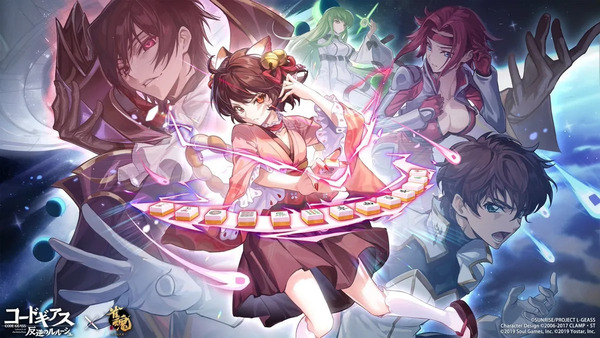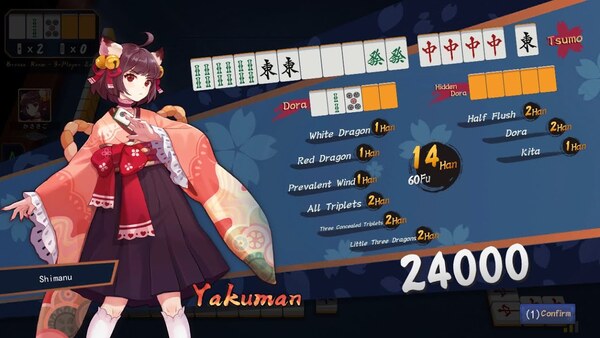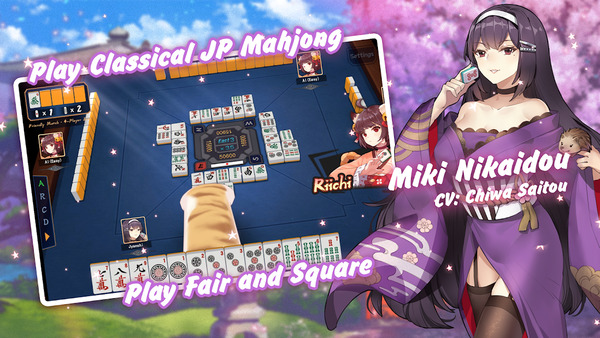Mahjong Soul is a digital adaptation of Japanese Riichi Mahjong that combines traditional gameplay with anime aesthetics. Whether you’re a complete beginner or looking to sharpen your skills, understanding how to play Mahjong Soul is essential for progressing in the game. This guide will take you through everything from setting up your account to mastering advanced strategies. With a mix of gameplay tips and character customization options, this guide will help you become a better Mahjong Soul player.

1. What is Mahjong Soul?
Mahjong Soul is an online multiplayer game that merges the rules of Japanese Riichi Mahjong with the flair of anime-styled characters. It offers both casual and competitive modes, allowing players to test their skills against AI or real opponents.
Key Features of Mahjong Soul
Mahjong Soul includes beautiful anime character designs, voice-acting, and a competitive ranking system. The game also features a Gacha system where players can unlock characters and in-game cosmetics.
Why Mahjong Soul Stands Out
While other Mahjong games focus purely on gameplay, Mahjong Soul adds a narrative element, giving players the chance to interact with their chosen characters and dive deeper into the world of Mahjong.
2. Setting Up Your Mahjong Soul Account
To begin playing Mahjong Soul, you’ll first need to set up an account. You can play Mahjong Soul on mobile devices or through your web browser.
Account Creation Process
You can register via email, Google, or social media accounts. Once registered, you’ll be able to sync your game progress across devices.
Guest Account vs. Registered Account
While you can play as a guest, it’s recommended to create a registered account to avoid losing your progress. Registered accounts allow you to participate in events and ranked matches.
3. How to Play Mahjong Soul: The Basics
The objective of Mahjong Soul is to form a valid Mahjong hand by collecting sets of tiles. The game is played with four players, and each player aims to complete their hand by drawing and discarding tiles.
Basic Gameplay Structure
The game begins with each player receiving 13 tiles. On each turn, players draw a tile from the wall and discard a tile they don’t need. The goal is to form a winning hand of 14 tiles.
Types of Tile Sets
There are three main types of sets in Mahjong Soul: Pungs (three of a kind), Chows (sequential sets), and Kongs (four of a kind). Your hand must also contain a pair to win.

4. Understanding the Riichi Call
Riichi is a special call that signals your hand is one tile away from winning. It’s a key mechanic in Mahjong Soul that adds both strategy and tension to the game.
How to Declare Riichi
When your hand is ready to win with one more tile, you can declare Riichi. Doing so raises the potential points you earn but locks your hand, meaning you cannot change your tiles after the declaration.
Pros and Cons of Declaring Riichi
Declaring Riichi increases the value of your hand but makes you vulnerable, as you can no longer change your tiles. Timing your Riichi call is essential to avoid getting stuck with a losing hand.
5. Defensive Strategies in Mahjong Soul
While Mahjong Soul is often about building your hand, learning how to defend against other players’ winning hands is equally important. Defensive play can prevent significant point losses.
Reading Opponents’ Discards
Watch what your opponents are discarding. If they’re avoiding a particular suit or tile, they may be saving them for a specific hand.
Safe Discards
If an opponent declares Riichi, it’s important to play safe tiles, meaning tiles that have already been discarded by other players. Safe tiles reduce the chances of your opponent using your discarded tiles to win.
6. Character Customization and Abilities
One of the unique aspects of Mahjong Soul is the ability to unlock and play with different characters, each with their own unique animations and voice lines.
How to Unlock New Characters
Characters can be unlocked through the game’s Gacha system, where players spend in-game currency or real money to obtain random characters and skins.
Customizing Your Experience
While characters and their abilities don’t directly affect gameplay mechanics, they add an element of fun to the game. You can also customize the background, tile designs, and table appearance.

7. Ranked Matches in Mahjong Soul
Ranked matches are where players can test their skills and compete against others to climb the leaderboard. Winning consistently in ranked matches requires a solid understanding of the game’s mechanics.
How the Ranking System Works
Players start at the lowest rank and earn points based on their performance in matches. The higher you place in a match, the more points you earn. Consistent wins help you climb the ladder.
Importance of Risk Management
In ranked matches, it’s critical to know when to play aggressively and when to fold. Sometimes, it’s better to play defensively to avoid losing points rather than risk everything for a win.
8. How to Win Consistently in Mahjong Soul
Winning consistently in Mahjong Soul requires more than just luck. It involves careful planning, reading your opponents, and making strategic decisions.
Focus on Hand Efficiency
One of the key strategies is to build efficient hands. Aim for simple, easy-to-complete hands like Tanyao (all simple tiles) or Pinfu (no points hand) to secure quick wins.
Keep Track of the Wall
The wall refers to the pile of remaining tiles. Keeping an eye on the wall and calculating how many tiles are left can help you decide when to push for a win and when to play defensively.
9. Advanced Mahjong Soul Strategies
Once you’ve mastered the basics, it’s time to move on to more advanced strategies that can give you an edge in competitive play.
Bluffing in Mahjong
Bluffing involves discarding tiles to mislead your opponents into thinking you are working on a specific hand. This can lead them to make mistakes and open opportunities for you to win.
Timing Your Win
Sometimes it’s worth holding out for a higher-scoring hand rather than winning quickly. Advanced players learn when to push for a higher-value hand and when to take a quick win.

10. Improving Your Mahjong Soul Skills
Improvement in Mahjong Soul comes with practice. The more you play, the more familiar you’ll become with the game’s patterns and strategies.
Reviewing Your Matches
Mahjong Soul offers a replay feature that allows you to review your previous matches. Analyzing your games and learning from your mistakes is a great way to improve your performance.
Joining the Mahjong Soul Community
Joining forums or Discord groups dedicated to Mahjong Soul can help you learn new strategies and connect with other players. Many experienced players share their tips, helping beginners understand the game better.
Conclusion
Mahjong Soul is a game that combines strategy, patience, and skill. By understanding how to play Mahjong Soul, including both offensive and defensive strategies, you’ll be able to master the game and enjoy its unique features. Whether you’re playing casually or climbing the ranked ladder, this guide has covered the essential tips and strategies needed for success. Keep practicing, embrace the challenge, and soon you’ll find yourself winning more games and becoming a skilled Mahjong Soul player.
 Schedule I
A detailed Schedule I game review, claims, gameplay, and experience from early access to final impressions.
Read full review
Schedule I
A detailed Schedule I game review, claims, gameplay, and experience from early access to final impressions.
Read full review
 R.E.P.O.
Explore the R.E.P.O. review and claim process in this comprehensive guide. Learn about its features, benefits, and key details you need to know.
Read full review
R.E.P.O.
Explore the R.E.P.O. review and claim process in this comprehensive guide. Learn about its features, benefits, and key details you need to know.
Read full review
 Coin Master
Explore Coin Master. Learn how to claim rewards, win raids, collect cards, and build your village in this thrilling slot-based adventure.
Read full review
Coin Master
Explore Coin Master. Learn how to claim rewards, win raids, collect cards, and build your village in this thrilling slot-based adventure.
Read full review
 CarX Street
CarX Street combines realistic physics, open-world racing, and extensive customization, delivering an exciting experience for both casual and competitive players.
Read full review
CarX Street
CarX Street combines realistic physics, open-world racing, and extensive customization, delivering an exciting experience for both casual and competitive players.
Read full review
 CarX Drift Racing 3
Master the art of drifting in CarX Drift Racing 3 with realistic physics, diverse tracks, and endless customization. Challenge players worldwide today.
Read full review
CarX Drift Racing 3
Master the art of drifting in CarX Drift Racing 3 with realistic physics, diverse tracks, and endless customization. Challenge players worldwide today.
Read full review
 Free Fire: Winterlands
Free Fire: Winterlands offers festive maps, exclusive rewards, unique game modes, and engaging community events, delivering a magical gaming experience.
Read full review
Free Fire: Winterlands
Free Fire: Winterlands offers festive maps, exclusive rewards, unique game modes, and engaging community events, delivering a magical gaming experience.
Read full review



















